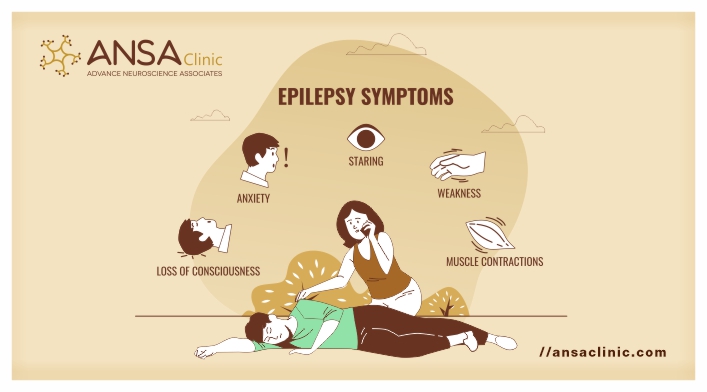Epilepsy is a brain disorder, which affects approximately 1% of the general population. According to an estimate, there are more than 1.25 crore people living with epilepsy, in India. Epilepsy is not a mental disease and is not contagious. It is characterized by recurrent seizures(more than 2 seizures), which are unprovoked. A single seizure can be due to a variety of causes like low sugar or sodium or other easily treatable factors.
Seizure Episodes
Seizure episodes are a result of excessive or abnormal electrical discharges in a group of brain cells. They are brief episodes of involuntary movement that may involve a part of the body (partial) or the entire body (generalized) and are sometimes accompanied by loss of consciousness and control of bowel or bladder function. Seizures can vary from the briefest lapses of attention or muscle jerks to severe and prolonged convulsions, depending on which site of the brain it originates. Seizures can also vary in frequency, from less than one per year to several per day.

Causes
Epilepsy can be due to a variety of causes like stroke, head injury, brain infection, tumours, and others. A detailed history and certain investigations are required to determine if the person had a seizure or something else and to know the type of seizure or epilepsy syndrome. The investigations like blood tests, to look for certain medical disorders. An EEG (electroencephalogram- brain wave test), to look for changes in the brain’s electrical patterns that are related to seizures. Either a CT (Computed Tomography) scan or an MRI scan (Magnetic Resonance Imaging). Normal test results do not mean that the seizures are not real or that epilepsy is not present.
Treatment
Medicine is the primary way in which seizures are controlled and is almost always the first therapy. There are many different medications to control seizures; called anti-epileptic drugs (AEDs). Choosing the right drug for you depends on a number of factors like; type of seizure, person’s age and gender, co-morbid illness, and side effects. Medicine can control seizures in about 70% of people living with epilepsy. One should not stop or change your medication without talking to your doctor. AEDs may be needed to be taken for a duration of 3- 5 years or longer.
Also Read
When a patient has two or more seizures in a year, even after using two or more tolerated and appropriate anti-epileptic drugs (AED), they are called “drug-resistant” epilepsy. Various treatment options are a special type of diet (ketogenic), surgery of the brain, or brain stimulation.
If you experience a seizure, Consult with the best Epilepsy Doctor at Ansa Clinic for the best treatment.
